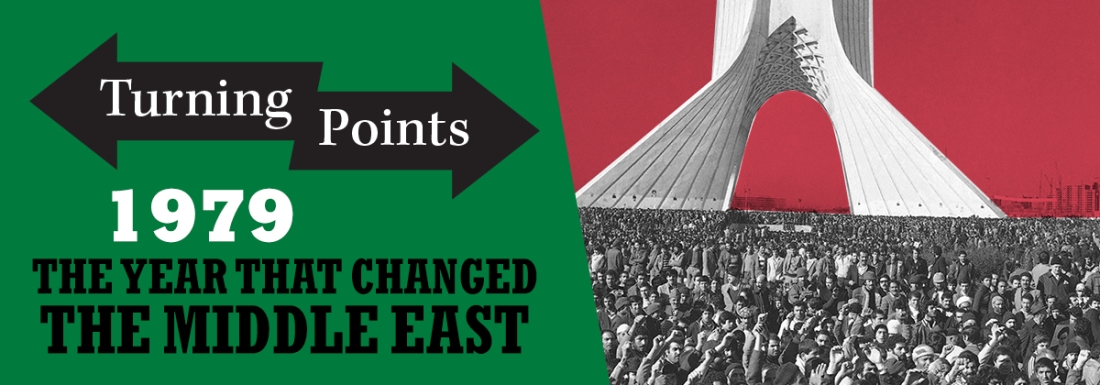Central Library has a new parking validation process.
The year 1979 was the most momentous for the Middle East in at least a half a century and perhaps far longer, going back to the horrific Mongol sack of Baghdad and end of the Islamic Golden Age in 1258.
In the second installment of the Library’s Turning Points series in partnership with the U.S. Army Command and General Staff College, military historian and Middle East authority Brian Steed recounts the chain of historic events in 1979 and their impact – including a lasting alteration of relations with the United States. The region saw the overthrow of the Shah of Iran and the creation of an Islamic state, Saddam Hussein’s ascension to the presidency of Iraq, the siege on of the Great Mosque in Mecca, and the invasion of Afghanistan by the Soviet Union.
Iranian militants stormed the U.S. embassy in Tehran in November 1979, taking more than 50 Americans hostage and triggering a crisis that lasted 444 days. Tensions and conflict persist. To paraphrase historian Andrew Bacevich, almost all U.S. military casualties before 1979 were sustained outside the Middle East and nearly all since then have been incurred in the wider region.
Steed is an associate professor of military history at the Command and General Staff College, where he has taught since 2013. He served in the Army as an armor officer and Middle East foreign area officer, living and working there for 8½ years. He retired from active duty as a lieutenant colonel.

